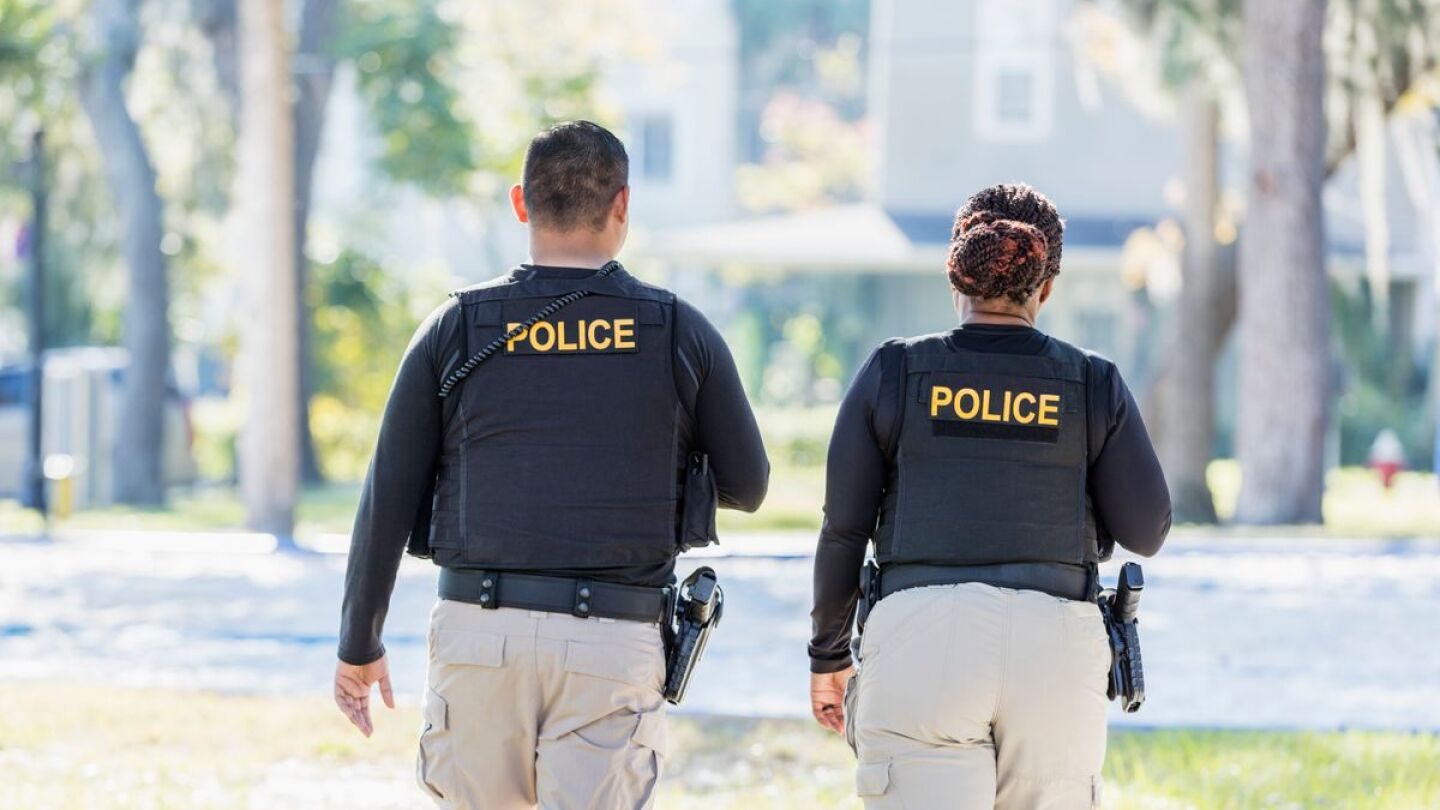Lexipol
Lexipol provides fully developed, state-specific law enforcement policies researched and written by subject matter experts and vetted by attorneys. Our policies are based on nationwide standards and best practices while also incorporating state and federal laws and regulations where appropriate. Best of all, we keep your policies updated for you, saving you time and money.
With Lexipol, you will enhance personnel accountability, reduce liability, save time and money on policy management AND rest easy knowing your department is protected.
Appeals court upheld overbroad search warrant describing a multi-unit home as single-family, ruling it valid and objectively reasonable
No qualified immunity for officers who fired at an uninvolved driver, finding their force and vehicle seizure unreasonable
The 5th Circuit upheld a human trafficking conviction after ruling a deputy’s detention and search were supported by reasonable suspicion
Get insights into how the duty to intervene is transforming law enforcement through leadership, accountability and legal frameworks
Remember to follow three simple principles: preparation, organization and clarity
With EMS response averaging 7-10 minutes and severe bleeding fatal within 3-5 minutes, officers must be ready to act immediately
In Stapleton v. Lozano, the 5th Circuit ruled officers were not deliberately indifferent after a drug user died in custody
Law enforcement agencies can secure grants to implement body-worn camera program funding; discover sources, tips and strategies for success
Making the unexpected leap from public servant to “accidental grant writer” requires skills to secure funding for public safety and civil service organizations
Once you move into a leadership position, it’s even more important to carefully manage your time
Learn how proactive strategies can help your agency stay ahead of legislative, technological and operational changes this year
Policies help foster accountability in public safety and in our personal lives; effective policies foster success in all areas of life
Put those policies out there and make them easy to access; we really have nothing to hide
CHP veteran and risk management expert Gordon Graham shares hard-earned lessons and real-world insights in a powerful new documentary
Discover practical strategies for public safety leaders to stay grounded, manage stress and inspire their teams during life’s toughest challenges
The Supreme Court’s ruling in Barnes v. Felix could help resolve whether use of force should be judged by the moment of threat doctrine or the totality of the circumstances
In Balogh v. Virginia, the court held police have no duty to intervene to protect protesters from third-party violence during a rally
In Naji v. Dearborn, the court affirmed an officer’s qualified immunity for shooting a suspect who pointed a gun at him
In Rucker v. Marshall, the court ruled body-worn camera footage supported qualified immunity for officers accused of unlawful arrest
Police face high rates of mental health issues like stress, PTSD and suicidal ideation; fixing this is key to effective public safety
Innovative child care programs are changing law enforcement recruiting and retention through agency-led programs, new laws and other solutions
Behavioral threat assessment and management (BTAM) is a multidisciplinary approach to identify and mitigate threats before they escalate
Proper practice, especially under stress, helps officers use these tools safely and effectively
The video led to a frisk and concealed firearm discovery, sparking debate over reasonable suspicion and the legality of the search
In U.S. v. Jackson, a priest questions the validity of a search warrant based on insufficient “place to be searched”
Key insights on performance excellence in law enforcement from experts Gordon Graham and Bryan Selzer and how data, training and positive reinforcement elevate your agency
Inaccurate police performance data can lead to missteps in law enforcement; here’s how well-tuned performance reporting can help
Learn how social media fitness apps like Strava can expose law enforcement officers’ locations, compromising their safety and privacy
FBI documentary explores how experiences with crisis, injury and death impact responders’ physical health, mental wellbeing and personal relationships
Recruiting has its ups and downs; sometimes we’ve got an applicant pool and sometimes we have an applicant puddle
Through stories of resilience and loss, the film calls for agencies to prioritize officer mental wellbeing
Law enforcement agencies have long focused on engaging the public, but internal communication is equally important
These action items can help officers incorporate mental fitness strategies into their daily routines
MOST POPULAR
- Compelling thumbprint to unlock phone was lawful (but not always)
- Reading recommendations on risk management: 4 books to add to your April reading list
- 5 law enforcement policy trends for 2024
- Gunshots and bullet hole justify warrantless entry
- Qualified immunity for gunshots that hit innocent passenger


































